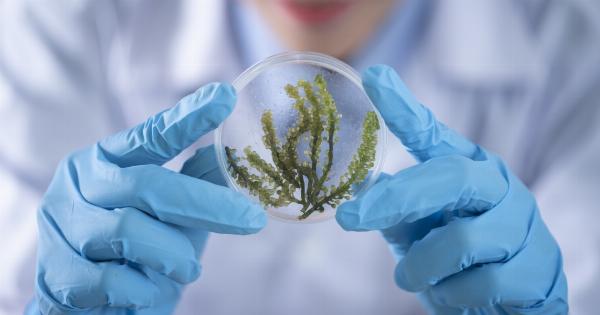As the body ages, hormonal changes occur that can have a significant impact on overall health and well-being. Hormones play a vital role in everything from growth and development to metabolism and mood.
Here, we explore the science of youthful hormones and how they can help us maintain optimal health and vitality throughout our lives.
What are Hormones?
Hormones are chemical messengers that act in the body to regulate a variety of physiological processes, including growth and development, metabolism, reproduction, and mood.
They are produced by a variety of glands, including the pituitary, thyroid, adrenal, and sex glands.
Some of the most well-known hormones include:.
- Estrogen: The primary female sex hormone, responsible for development of female sexual characteristics, regulation of the menstrual cycle, and maintenance of bone health.
- Testosterone: The primary male sex hormone, responsible for development of male sexual characteristics, muscle mass, and bone density.
- Growth hormone: A hormone that stimulates growth and development in children and adolescents.
- Insulin: A hormone that helps regulate blood sugar levels and metabolism.
- Cortisol: A hormone that helps regulate stress and inflammation.
Hormonal Changes as We Age
As we age, hormonal changes occur that can affect a variety of physiological processes. These changes can be influenced by a variety of factors, including lifestyle, genetics, and environmental toxins.
Some of the most notable hormonal changes that occur as we age include:.
- Decline in estrogen production in women: As women approach menopause, their bodies produce less estrogen, which can lead to symptoms such as hot flashes, mood swings, and vaginal dryness.
- Decline in testosterone production in men: As men age, their bodies produce less testosterone, which can lead to symptoms such as decreased muscle mass, decreased bone density, and decreased sex drive.
- Decrease in growth hormone production: As we age, our bodies produce less growth hormone, which can lead to decreased muscle mass, increased fat accumulation, and decreased bone density.
- Increased insulin resistance: As we age, our bodies become less sensitive to insulin, which can lead to an increased risk of developing Type 2 diabetes.
- Increased cortisol production: As we age, our bodies may produce more cortisol, which can lead to symptoms such as increased inflammation, decreased immune function, and increased risk of chronic disease.
The Importance of Youthful Hormones
Youthful hormones play a key role in maintaining optimal health and vitality throughout our lives. They help regulate everything from metabolism and energy levels to mood and cognitive function.
Here are just a few of the key benefits of maintaining youthful hormones:.
- Increased energy and vitality
- Improved mood and mental clarity
- Increased muscle mass and bone density
- Decreased risk of chronic disease
- Improved sexual function
Strategies for Maintaining Youthful Hormones
While hormonal changes are an inevitable part of the aging process, there are several strategies that can help us maintain youthful hormones and optimize our overall health and well-being. Here are just a few:.
1. Exercise regularly
Regular exercise has been shown to help maintain youthful hormone levels, including growth hormone and testosterone.
Exercise also helps regulate insulin levels and can decrease cortisol production, leading to improved metabolic health and decreased inflammation.
2. Eat a healthy diet
A healthy diet that is rich in nutrient-dense foods such as fruits, vegetables, whole grains, and lean proteins can help support youthful hormone levels and optimize overall health.
Some specific foods that have been shown to support hormone health include:.
- Cruciferous vegetables such as broccoli, cauliflower, and kale, which contain compounds that help regulate estrogen levels
- Lean proteins such as chicken, fish, and tofu, which are rich in amino acids that support growth hormone production
- Foods high in healthy fats, such as avocado, nuts, and olive oil, which can help support healthy testosterone levels
3. Manage stress
Chronic stress can increase cortisol production, leading to inflammation, decreased immune function, and increased risk of chronic disease.
Managing stress through practices such as meditation, yoga, or deep breathing can help decrease cortisol levels and support optimal hormone health.
4. Get good quality sleep
Quality sleep plays a critical role in supporting healthy hormone levels. During sleep, our bodies produce growth hormone, which helps support muscle and bone health.
Poor sleep quality, on the other hand, can lead to decreased growth hormone production and increased cortisol levels.
5. Consider hormone replacement therapy
In cases where hormonal changes are causing significant symptoms or health issues, hormone replacement therapy may be a viable option.
Hormone replacement therapy involves taking synthetic hormones to replace the hormones that the body is no longer producing sufficiently. It is important to discuss the risks and benefits of hormone replacement therapy with a healthcare provider before beginning treatment.
The Bottom Line
Healthy hormones are a critical component of optimal health and vitality. By understanding the science of youthful hormones and implementing strategies to maintain them, we can support overall health and well-being throughout our lives.






























